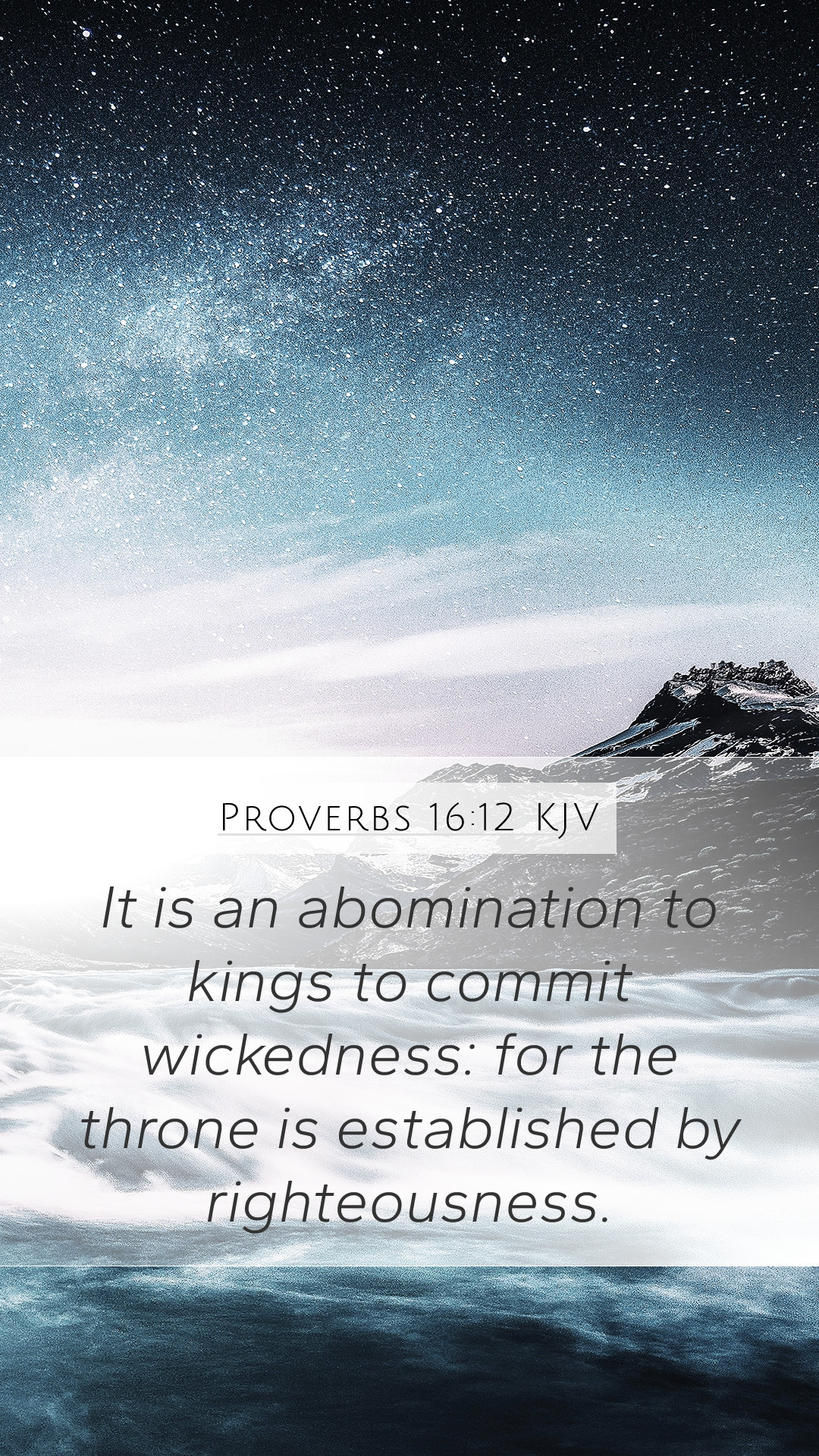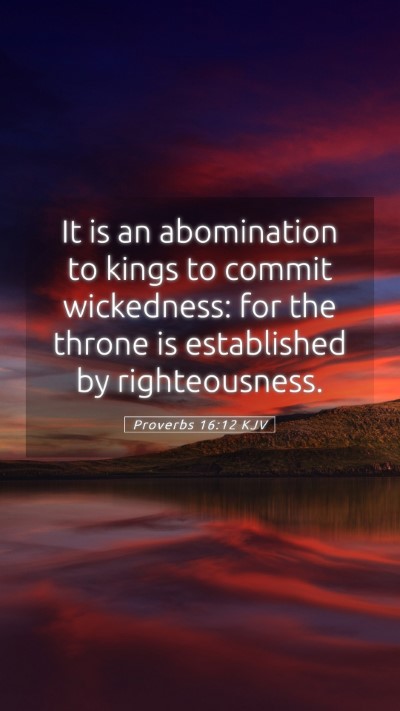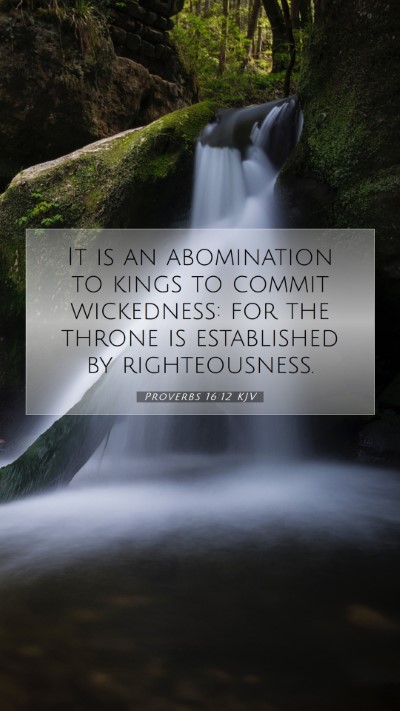Understanding Proverbs 16:12
Proverbs 16:12 states, "It is an abomination to kings to commit wickedness: for the throne is established by righteousness." This verse encapsulates the essence of righteous governance and the ethical standards required for leaders. In examining this verse, various public domain commentaries provide profound insights that enhance our understanding of its meaning and implications.
Key Themes in Proverbs 16:12
- The Nature of Kingship: The verse emphasizes that kings and rulers are expected to uphold justice and righteousness.
- Righteousness as Foundation: The concept of righteousness is presented as the pillar upon which a throne is established.
- Consequences of Wickedness: The verse warns that engaging in wickedness is viewed as an abomination, with significant consequences for leadership.
Commentary Insights
Matthew Henry's Commentary
Matthew Henry highlights that rulers, being in a position of authority, are particularly accountable for their actions. He notes that the divine design of kingship is to promote justice and righteousness, and failure in these areas skews the moral fabric of their rule. Wickedness not only discredits the individual ruler but also undermines the authority vested in the throne itself.
Albert Barnes' Commentary
Albert Barnes elaborates on the idea that governments thrive on moral integrity. He posits that rulers who engage in immoral or corrupt practices jeopardize the stability and respect of their offices. Barnes further explains that righteous leadership fosters trust among the people, which is essential for a harmonious society. The threat of devastation looms over those who do not adhere to these foundational principles.
Adam Clarke's Commentary
Adam Clarke takes a historical perspective, discussing the significance of the righteous rule in the context of ancient kings. He asserts that "wickedness" refers to acts that go against the common good, highlighting that a king who seeks personal gain at the expense of justice invites turmoil. Clarke’s reflections stress that righteousness ensures not just the king’s success but also the prosperity of the kingdom.
Application of Proverbs 16:12
The application of Proverbs 16:12 extends beyond literal kingship to any position of authority. Individuals in leadership roles, regardless of scale, are encouraged to adhere to ethical standards and pursue righteousness as the foundation of their influence. This verse invites personal reflection on the moral responsibilities we carry in our everyday actions, whether in community roles, workplaces, or family settings.
Cross References
- Proverbs 20:28 - "Mercy and truth preserve the king: and his throne is upholden by mercy."
- Psalm 72:1-2 - "Give the king thy judgments, O God, and thy righteousness unto the king’s son."
- Romans 13:1 - "Let every soul be subject unto the higher powers. For there is no power but of God: the powers that be are ordained of God."
In summary, Proverbs 16:12 serves not only as a declaration about kingship but a timeless reminder of the accountability and moral responsibilities that come with leadership. By engaging with this verse and the rich commentaries surrounding it, one gains deeper bible verse meanings, enhancing their Bible study insights and fostering a more profound bible verse understanding suitable for discussions in bible study groups or online Bible study.


